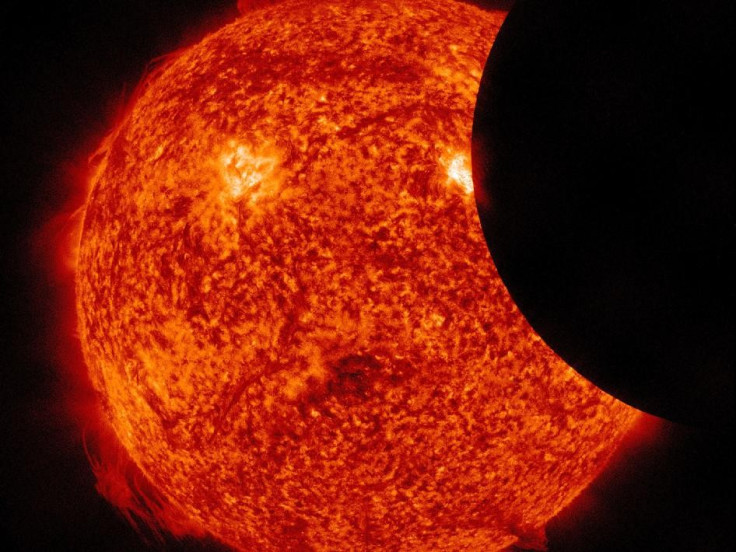Several Myths and Legends Surround Solar Eclipse

Even though solar eclipses are spectacular, there are several myths and legends surrounding the celestial event.
In ancient times, people believed that solar eclipses caused by some mythical characters, were a bad omen.
Solar eclipse was mentioned in an ancient Chinese text in which it was stated that Emperor Zhong Kang had beheaded two astronomers Hsi and Ho, for failing to predict an eclipse 4,000 years ago.
In ancient China solar eclipse was regarded as one of the greatest events as they believed that the eclipse would foretell the future of the king.
Ancient Chinese also believed that a celestial dragon ate up the sun, during solar eclipse. To scare away the dragon, they used to bang drums and pots and make loud noises. They even tried to scare the dragon by shooting arrows. They used do the same thing when lunar eclipses occurred.
In the nineteenth century, the Chinese navy fired its cannons during a lunar eclipse to scare what they saw was a dragon eating the moon, according to a Bibliotheca Alexandrina report.
Although throughout history, solar eclipse was considered a bad omen, in one period it was acknowledged that the eclipse also did some good.
In Hindu mythology, people in ancient India believed that the demons Rahu and Ketu swallowed the sun during solar eclipse. They believed that Rahu and Ketu sucked all the life-giving light and poisoned food and water.
Even now some people do not eat food during solar eclipse; they fast and pray. Once the eclipse is over they take bath, cook fresh food and consume it. During solar eclipse pregnant women in India are advised to stay indoors.
In ancient Egypt, the kings or the pharaohs fancied themselves as the descendants of sun. During solar eclipse, they would walk around their main temple till the eclipse was over.
The Shintos in Japan used to place a talisman - a precious stone studded necklace - on the branches of the scared Clauria tree. The brilliance of these stones was thought to compensate for the amount of sunlight lost during eclipse. At some places bonfires were lit as a substitute for the talisman, according to pitara.com.
During the ancient Greek period Herodotus, a historian, had mentioned in his book Thales Of Miletus as to how eclipse bought peace. He spoke about an eclipse that occurred during a war between the Medians and the Lydians. Both sides lay down their weapons and declared peace as a result of the eclipse.
One of the most important historical solar eclipses is the annular solar eclipse of 27 January, 632. It was visible in Medina during the lifetime of Prophet Mohammad and coincided with the death of his little son Ibrahim. The Prophet stated explicitly that the eclipses of the sun and moon are not bad omens, but are cosmic spectacles that demonstrate the might and knowledge of Allah the Great, according to a Bibliotheca Alexandrina report.
© Copyright IBTimes 2025. All rights reserved.





















